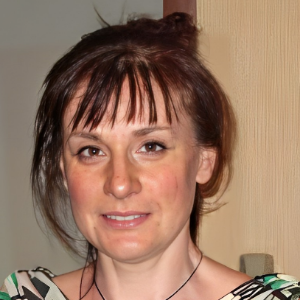Title : Mechanotransduction -towards a bioinspired design of responsive biomaterials
Abstract:
Mechanotransduction refers to the phenomenon that external mechanical stresses acting on cells are translated into intracellular biochemical signals, which in turn trigger adaptive responses [Martino 2018]. Extensive research has shown that the biomechanics of the extracellular matrix influence crucial cellular processes, including adhesion, spreading, proliferation, migration, and differentiation. Cells interact dynamically with the ECM by being pulled through the actomyosin-integrin machinery and pushed through the polymerization of actin and microtubules [Sun 2016]. The mechanical nature of the ECM is therefore of paramount importance in guiding cell status decisions. Evidence suggests that energy dissipation through the viscoelastic ECM may play a crucial role in controlling cell fate decisions, and therefore the "energy dissipative" contribution should not be neglected in the development of biomimetic materials. Moreover, it is still unclear whether and how it correlates with the specific cell response. To address this open question, we have fabricated joint viscoelastic and plastic substrates and subsequently investigated the cell response. Using dynamic hydrogels based on natural polysaccharides, we introduced the notion of "substrate dissipation energy", i.e. the molar energy required to deviate from the linear stress-strain regime and enter the plastic region [ P. Sacco et al., Advanced Functional Materials. 2020, 30, 2001997]. Dissipation energy appears to be an important control variable for cell fate. Strikingly, we found an inverse relationship between substrate energy dissipation and cell response, with high adhesion/high spreading and low adhesion/no spreading for substrates with low and high dissipation energy, respectively. Our recent results show that viscoelastic and plastic polysaccharide-based substrates endowed with different dissipation energies can modulate cell behavior in terms of adhesion, spreading, migration, and differentiation. We concluded that cells make their response dependent on the effective energy they can use for their functions, and that the ability of substrates to store or dissipate cellular forces is therefore a powerful tool for modulating intracellular signals



